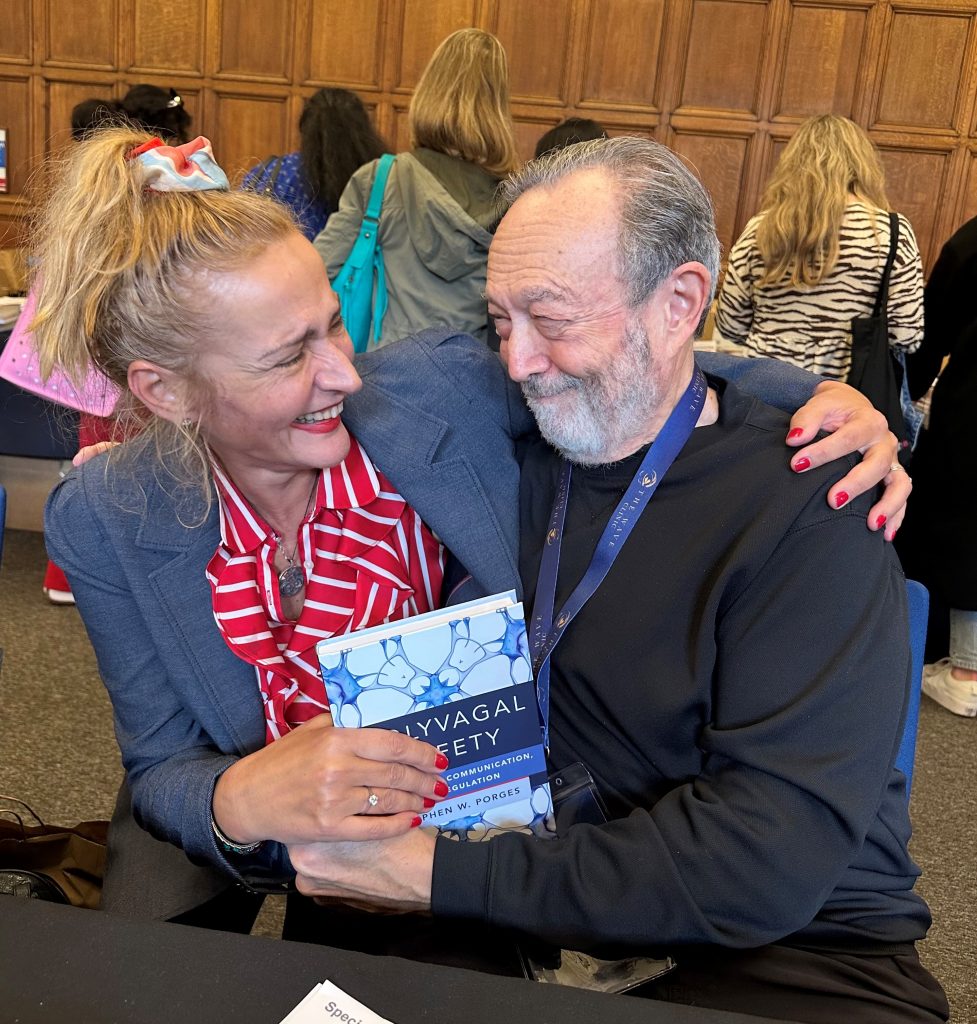
As I wrote last Tuesday, I had the privilege of attending the largest Trauma and Mental Health Conference in Europe, hosted at the prestigious University of Oxford. It was an immersion in transformative insights, as distinguished professionals shared groundbreaking research, innovative strategies, and proven methodologies.
A highlight for me was the Legacy Talk featuring Bessel van der Kolk, Stephen Porges, and Peter Levine. Their discussion wove clinical and historical threads, exploring the intersection of van der Kolk’s trauma research, Levine’s Somatic Experiencing, and Porges’ Polyvagal Theory. It was fascinating to witness the synchronicity of their rise to prominence.
These visionaries, often referred to as “brothers from another mother” by Dr. Porges, demonstrated remarkable openness. I was amused by the story of how Steven and Peter first met at the airport in a pre-Zoom, pre-iPhone era. Peter’s description of himself as “the guy in a white blazer and pink carnation” still brings a smile to my face. Friendship which started like that has endured through many years.
All three of these pioneers challenged the status quo in their respective fields. As Bessel van der Kolk put it, “‘Back in the sixties it was a vastly different time. Today, evidence-based treatment dominates. Back then, everything was up in the air.” Their boldness and curiosity led them to success.
Dr. Porges, a professor of psychiatry and the creator of the Polyvagal Theory, left a lasting impression on me. His theory highlights the crucial role of the autonomic nervous system, particularly the vagus nerve, in regulating our health and behavior. A wonderful thing is that we can apply Polyvagal Theory across various fields, including medicine, education, and management.
In closing, I’d like to leave you with a quote from Dr. Porges: “We have an innate need to create and connect.” These words resonate deeply with the profound impact of the conference and its reminder of the power of human connection in our pursuit of well-being.












